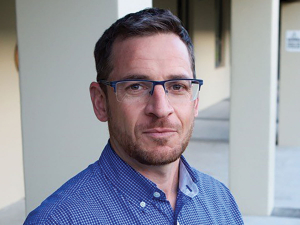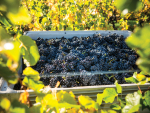The New Zealand wine industry has long had a reputation for sustainability and being focussed on protecting the people and places that make our famous wines.
As we look to the future, our industry's commitment to sustainability will be challenged by changing consumer demadns and impending government regulations. Nonetheless, this commitment and our innovative practices will continue to be an enormous asset that highlights how New Zealand winemakers and grape growers can craft exceptional wine while helping the natural environment, local business and communities to thrive. Below are three key areas of progress where, as a collective, we can leverage our focus on sustainability to influence consumer preference and potentially reduce operating costs.
Climate change - increasing impact on the industry
Climate change has fast become the most talked about focus area of sustainability. It's not hard to see why. Climate data recently published by NIWA highlighted that 2021 was New Zealand's warmest year on record, surpassing the previous record set in 2016. Seven of the past nine years have been amongst the warmest on record and New Zealand's annual average temperature has increased one degree over the past 100 years. Most predictions suggest this warming trend will continue until at least mid-century. Actions we implement now will determine the rate of increase after this time. These statistics and the increasing amount of extreme weather events we are seeing as a result, highlight why it is important the industry shows leadership in adopting practices that help to minimise our industry's greenhouse gas emissions.
Last year, Sustainable Winegrowing New Zealand (SWNZ) began recording information on key emissions sources from both vineyard and winery members. This data covers approximately 80 percent of all emissions associated with the production of wine. At a national level, the New Zealand wine industry is unique worldwide amongst key wine producing countries in being able to make that claim. In addition, five percent of SWNZ member vineyards and nine percent of SWNZ member wineries measure their carbon emissions through an independent certification programme. New Zealand Winegrowers (NZW) expects this number to rise in coming years as our members respond to consumers who expect this information.
This data is particularly important for New Zealand wine due to our distance from market and perceived risks associated with “wine miles”. SWNZ data is key to mitigating this risk. The data highlights that 80 percent of our emissions are associated with the production of wine rather than its distribution and that, due to our electricity supply being largely renewable, wine produced in New Zealand is low in emissions when compared to countries that rely on non-renewable fossil fuels as energy sources.
Packaging is one of the key sources of emissions in the production of a bottle of wine, accounting for approximately 37 percent of total emissions. In recent years influential figures in the wine industry, such as Jancis Robinson MW and Tim Atkin MW, have campaigned against heavy wine bottles. Looking ahead there is a risk that major retailers will use their buying power (and the need to meet their own carbon reduction targets) to strong-arm winemakers into acting in this area. Using exclusively New Zealand produced glass, increasing the uptake of lightweight bottles and alternative packaging materials will help New Zealand producers respond to this risk while helping to further drive down our GHG emissions, getting us closer to our goal of being a carbon neutral industry by 2050.
Appealing to younger consumers
In many of our major markets, Covid-19 has accelerated the trend for younger consumers to choose beverages apart from wine. In making predictions for 2022, wineintelligence.com have highlighted that to reconnect with younger consumers, premium brands will need to work out how to align their values and actions with the next generation of consumers.
In practice, this means acting ethically both in social and environmental terms, while not compromising the quality of the product itself. Our industry is in a unique position to turn this challenge into an opportunity.
New Zealand wine’s reputation for sustainability, and the hard data we have through SWNZ to demonstrate our commitment to sustainable practices, are likely to help. In recent years an increasing number of member organisations are producing sustainability reports for their business that demonstrate the actions they are taking to provide transparency and ensure their activities are having a positive impact. Sustainability is becoming an increasingly important part of their brand stories and a key touch point for their consumers. This trend looks set to continue throughout 2022 and beyond.
Government regulation and our commitment to sustainability
While Covid-19 dominated the headlines last year and caused significant disruption to the industry, during 2021 the Government also focussed on implementing its strong environmental reform agenda.
This reform process promises significant changes to legislation across four of our six sustainability focus areas: water, waste, climate change and plant protection.
NZW has been engaged with the Government on these reforms. At this stage, the Government’s feedback to our industry has been positive. NZW remains confident that our industry can respond positively to the coming changes.
This cautious optimism is in part due to members’ longstanding commitment to SWNZ. Its data provides us with strong evidence when we communicate with government on the relatively low environmental impact of winegrowing. This data is critical to ensuring our social licence to operate.
Demonstrating our commitment to protecting the people and places that make our famous wines can help to reduce the cost of government regulation on the sector. For exactly this purpose, a number of other primary sector industry organisations are scrambling to establish systems similar to SWNZ that collect this type of information. Throughout 2022 and beyond, NZW will continue to focus on making the most of this opportunity on behalf of our members.
Telling our sustainability story
Our focus on sustainability has always been an integral part of the New Zealand wine industry. Whether it is demonstrating our commitment to fighting climate change, appealing to younger consumers by engaging them on the issues that matter, or working with government to ensure our social licence to operate, our industry’s reputation for and focus on sustainability makes a positive difference.
Nonetheless, the sustainability landscape is becoming increasingly crowded and consumers are becoming increasingly aware of false claims and greenwashing.
It will become increasingly important not just to tell our sustainability story in a way that connects with people, but to illustrate this story with quantitative evidence that is compelling and easy to understand.
NZW is focussed on using our members’ commitment to sustainability to help build our brand story. This year sustainability will be the key theme of NZW marketing activities, with the Green Wine Future conference in May being a keynote event.
Through this work we will continue to respond to these challenges, converting them into opportunities that bring value to our sector.
Edwin Massey is NZW’s General Manager Sustainability.














